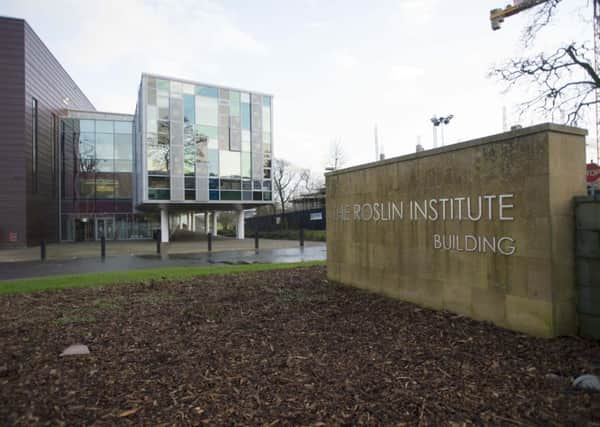Dolly the Sheep institute '˜contaminated river next to school'


The Roslin Institute allowed silage effluent to escape into Bilston Burn for several months, damaging the ecology of the stream for half a mile with “dense sewage fungus”.
But the Scottish Environment Protection Agency (SEPA) let Roslin off with a final warning letter and the pollution incident three years ago was not made public.
Advertisement
Hide AdAdvertisement
Hide AdBilston Burn flows past the grounds of Roslin Primary School annexe.
Silage effluent is liquid waste from harvested crops and is 200 times stronger than untreated domestic sewage. It kills fish by starving them of oxygen until they suffocate.
The Roslin Institute, part of Edinburgh University and employing around 500 people, hit the headlines in 1996 after it cloned Dolly.
A Freedom of Information request to SEPA shows that in late 2012 and early 2013 the institute polluted at least 800m of Bilston Burn with silage effluent from faulty silage pits and tanks.
Advertisement
Hide AdAdvertisement
Hide AdRoslin bosses blamed the contamination on a “failure of our waste management procedures during an exceptionally wet period of weather during the Christmas and New Year period when we were forced to employ temporary staff due to ill health”.
An ecology report on the January 18, 2013 by SEPA’s testing laboratory wrote: “The results from this survey show that in the input of silage effluent is causing a significant downgrade of ecological quality in the Bilston Burn for a length of at least 800m along its course.
“It is probable that the discharge has been occurring for a number of months given the length of the burn that is affected by dense sewage fungus.”
In a “final warning letter” to Roslin Institute dated April 24, 2013, Simon Cole, unit manager for Edinburgh and the Lothians operational team at SEPA, wrote: “Any further contravention of the above legislation is likely to result in enforcement action.”
Advertisement
Hide AdAdvertisement
Hide AdFriends of the Earth Scotland director Dr Richard Dixon said: “It is very surprising that an institution with such a strong international reputation appears to have been so careless about protecting the environment.
“If the allegations of deliberate dumping of polluted material are proven very heavy fines should be imposed.”
A spokeswoman for the Roslin Institute said: “The university responded to SEPA immediately to make them aware of our plans to rectify the problem. Subsequently, the university undertook repairs and renovations of the facility and put in place new procedures.
“Representatives from SEPA made a further inspection of the farm in May 2013 and found our actions to be satisfactory for the prevention of future incidents. There has been no further release of silage effluent into Bilston Burn from the university farm.”
Advertisement
Hide AdAdvertisement
Hide AdA spokesman for SEPA said: “Edinburgh University was issued a final warning following the incident and it is understood that extensive repair work and surveys were undertaken immediately to ensure no further pollution discharged to the local environment.”